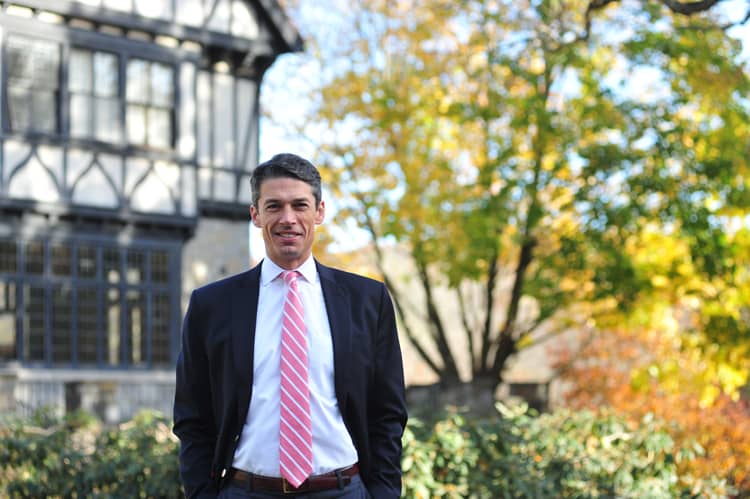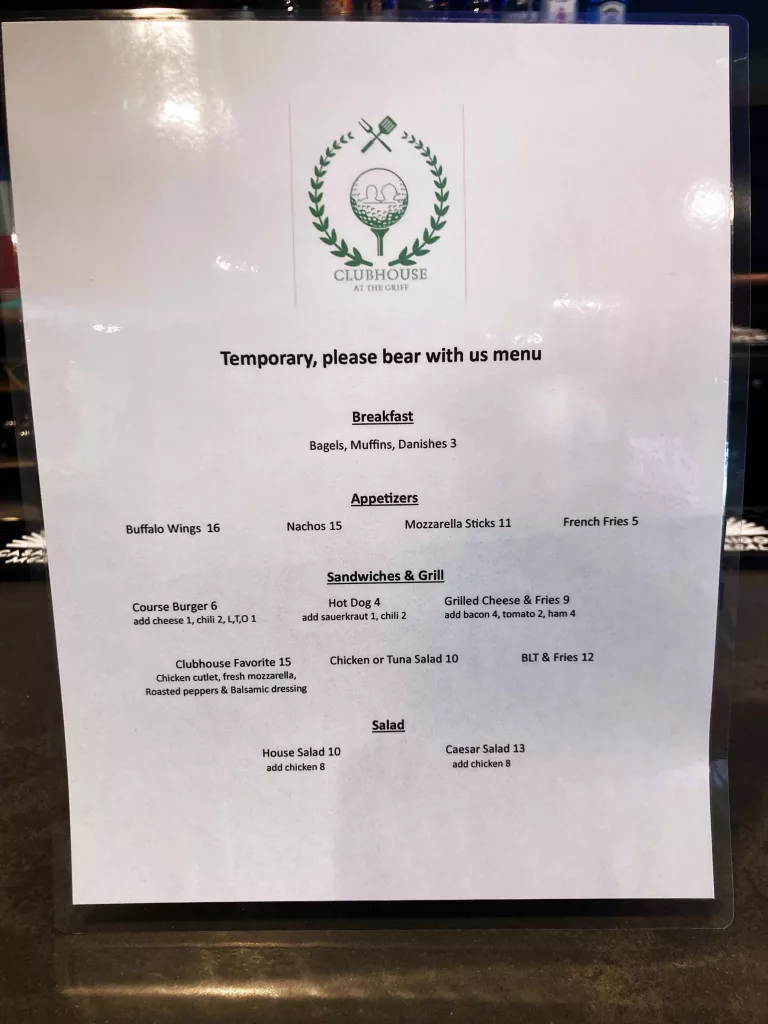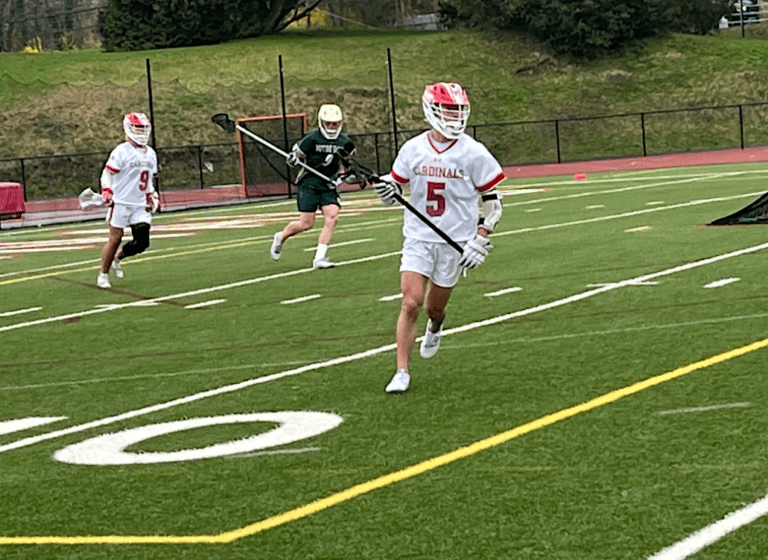
By Peter W.E. Becker, Head of School, The Gunnery
As any parent today knows, the struggle to help a child engage wisely with technology is real. Battles over screen time are played out daily at the breakfast table, at family dinners or after school, when there is usually homework to be done. And what they’re watching may be cause for concern as access has become ubiquitous and unfiltered, and the content itself is more explicit and, frankly, bizarre. Our children are growing up faster than ever, especially in terms of the media content they consume and to which they are exposed. Snapchat, Tinder, 13 Reasons Why, Game of Thrones, and videos of the latest police shooting: the environment in which our children live acculturates them to extreme behavior heretofore limited largely to adults (and even we adults are adjusting to the intensity of today’s content). Yes, parents and educators can and should try to enforce access and usage norms–but that is a drop in the ocean, a finger in the dam, Sisyphean. We need fuller, deeper solutions.
At the same time, far too many young adults exhibit symptoms of “adultolescence” as they enter college. Young women and men graduate from good schools and should be among the most prepared people on the planet for the next phases of their lives–college and beyond. Yet The New York Times has reported they experience increasing rates of anxiety and depression, have difficulty finishing college in four years, have difficulty deciding on and obtaining full-time employment, and act like adolescents through much of their twenties. At a time when they ought to be demonstrating more independence, greater confidence, and the ability to navigate the world on their own, instead we see high school students becoming more fragile, less resilient, and more dependent than ever.
As the sociologist Christian Smith and his colleagues write in their 2011 book, Lost in Transition, young people today face “five major problems: confused moral reasoning, routine intoxication, materialistic life goals, regrettable sexual experiences, and disengagement from civic and political life.” Or, put more directly by Ben Sasse in his new book, The Vanishing American Adult, “Our kids simply don’t know what an adult is anymore–or how to become one” and, instead, they drift “in a state of passive, dependent, perpetual adolescence.”
One important antidote for teenagers in this new world is participation in an integrated, holistic educational community–in other words, a boarding school. In these communities, adult and students agree to and endeavor to practice wise and deliberate engagement with media and devices, of all types, in the midst of their day-to-day lives. The best of these communities are increasingly intentional about how they equip students for the media-saturated world that invites them to avoid growing up. These communities recognize the answer is not primarily about when students can and cannot use their phones, or simply taking phones away when students violate the rules. Although these measures are necessary, they are not sufficient. We need to equip students to develop autonomy from their devices and the wherewithal to turn them off, to not watch the viral video; to, as one student shared with me just before school ended, remove Snapchat from their phone for the summer, at least, and conquer their fear of missing out.
Students today, more than ever, need adults in their lives who know how to engage them rather than just shut them down. That can come as a brief, non-shaming, witty remark at dinner in the dining hall that appeals to the student’s inner sense that no, this is not the right time to be looking at one’s phone, rather than barking “put your phone away.” Or perhaps it’s a more deliberate conversation in the dorm about the impact that all-night gaming or binge watching Game of Thrones can and does have on one’s imagination, visual memory, quality and quantity of sleep, and academic performance.
Students need more than conversations, of course, to grow into mature young adults. Though no two boarding schools are the same, nearly all of them require students to handle responsibility, overcome adversity, and practice leadership. For example, the horse program at Thacher School pairs every ninth grade student with a horse to care for the entire year. Horses, to state the obvious, need care regardless of whether one is having a good day or a bad day or generally feels up to it. The program is unique to boarding schools and the ideal countermeasure to the “iWorld” that envelops most teenagers today.
Similarly, the founder of The Gunnery, Frederick Gunn, knew that students in 1850, the school’s first year, needed to encounter and learn to navigate the outdoors as preparation for life. (Mr. Gunn is credited by the American Camping Association as the founder of the modern American camping movement.) The Gunnery’s Outdoor Program continues that tradition today, premised on the understanding that learning to navigate an environment that is unresponsive to one’s immediate desires and comfort, and which requires appropriate risk taking and creative, in-the-moment problem solving, is ideal preparation for the zigs and zags of life after high school.
Boarding schools offer world class academics, teaching, and co-curriculars in expansive, beautiful facilities. But more importantly, they offer communities of experienced mentor-teachers who know how to engage achievement-oriented teenagers. When a student’s advisor is also his or her English teacher or lacrosse coach or dorm parent, there are multiple opportunities each day to consider the uses of technology and media in dialogue with an experienced educator who isn’t afraid of, and may even relish, the conversation–and can also help with that knotty math problem. Students at boarding school, by nature of the fact that they have to get themselves out of bed, ready for the day, to breakfast, and to class–and that’s all by 8 a.m.–develop the habits of engaged autonomy. They are ready to live independently in college and beyond.
Today’s boarding schools also have embraced parents as the valuable partners they are. As Dr. Kate Windsor, the Head of School at Miss Porter’s School, is fond of saying, “Parents of boarding school students don’t abdicate their responsibilities; they don’t parent less. They partner with the school and parent better. It’s a team approach that students need today more than ever.” It is hard for us, as parents, to learn to let go of our children. Boarding schools provide that practice in safe, nurturing environments that welcome parent engagement and nurture more independent, resilient teenagers in this age of adultolescence.
Peter W.E. Becker, was appointed in 2012 as the 11th headmaster of The Gunnery, an independent co-ed boarding and day school in Washington, Conn., founded in 1850 by Frederick Gunn.




